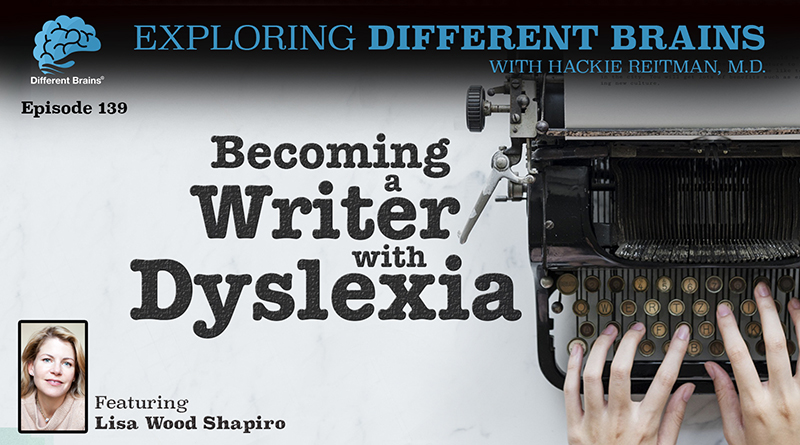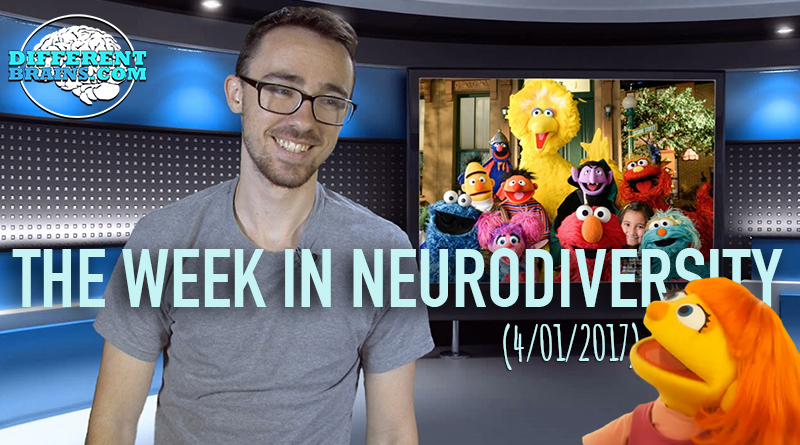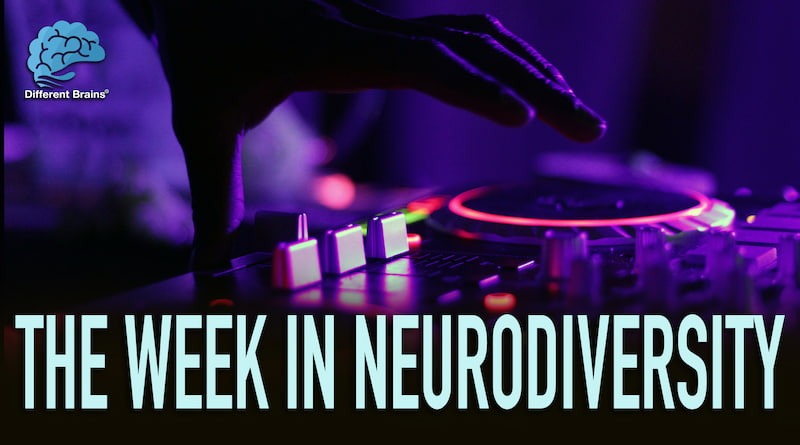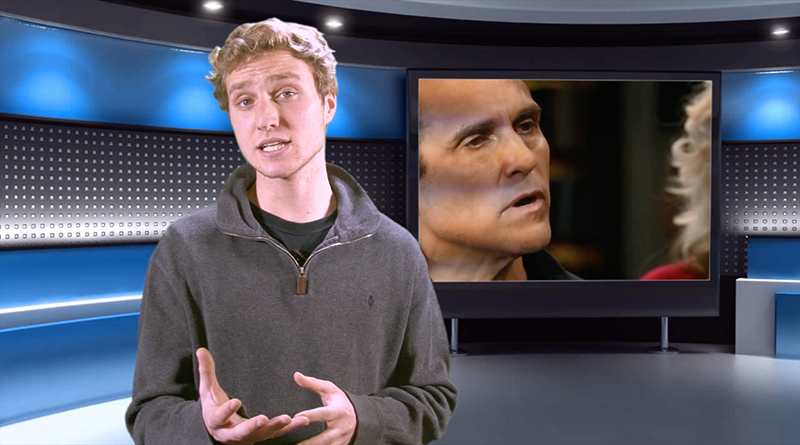
Becoming a Writer with Dyslexia, with Lisa Wood Shapiro | EDB 139
In this episode, Dr. Hackie Reitman speaks with writer Lisa Wood Shapiro.
Lisa is a contributor to Vogue, Wired, Outside Magazine, Real Simple, and The Hiking Project. She is also the author of the humorous memoir Hot Mess Mom and is currently finishing her second book. She discusses writing with dyslexia, the fears she had about disclosing her challenges, and tips for anyone that wants to become a writer. (22 minutes)
For more about Lisa: lisawoodshapiro.com
To read her Wired article on dyslexia: “HOW TECHNOLOGY HELPED ME CHEAT DYSLEXIA”
.
To listen or download the podcast version of this episode, see the embedded player below.
Or look for us on your favorite podcast provider:
iTunes | Stitcher | SoundCloud
[expand title=”View Full Transcript”]
HACKIE REITMAN, M.D. (HR): Hi I’m Dr. Hackie Reitman, welcome to another episode of Exploring Different Brains. Today we have Lisa Wood Shapiro who’s written a new book, she’s going to tell you about “The Hot Mess Mom,” but the way I found her was this great article on dyslexia and she’s going to tell us all about herself it’s very very very interesting. Lisa wood Shapiro welcome to Exploring Different Brains.
LISA WOOD SHAPIRO (LWS): Thank you for having me.
Writing with dyslexia
HR: Thanks for being here why don’t you introduce yourself better than I just did to our audience.
LWS: I’m a writer I write for Wired I write for Vogue I’m a correspondent for outside magazine I also an SAS and I’ve written for Real Simple and I did write the humorous memoir “Hot Mess Mom” and I also happen to have dyslexia and I’ve kept that a complete secret up until late June when I wrote my piece in Wired called “How Technology Helped Me Cheat Dyslexia.”
HR: Well I really really enjoyed it and it goes with part of my theory that technology itself is rewiring our brains out of necessity and we’ll get into that more later. Tell us about how you use the phrase that you finally got brave enough to come out and you know what so many things now are coming out and not being ashamed of it and tell us about a professional writer such as yourself coming out with dyslexia.
LWS: You know it was something I was never going to write about and definitely I mean it occupied a taboo place in my narrative, I still think I mean even the last week when I was making revisions I was at a house in the Hamptons for a girls weekend I had friends I’ve known since high school of freshman year in high school and one of them took me aside to say don’t write this, you can’t have this thing get out and so her reaction was kind of my reaction prior to I guess February of 2017. When I started using grammar early and I also have this reaction whatever I think of something and I think I don’t want anyone to know that I usually end up pitching it to an editor right.
So I was at a point and we can get to this a little later where tech you know some people say it’s an inflection point, I don’t know if that’s the right word. I had met tech at the place where it was seamless Microsoft Word as I talked about in the piece usually has no suggestion if I’m on my iPhone I forget what the word is but it’s basically no suggestion. So this little free plugin called Grammarly I’ve had an extended edit distance. So for example if you spell a word wrong how many substitutions deletions will it take to correct the word and as we go further and further and expand the learning machine learning how things are corrected we’re getting to a longer edit distance or a more efficient edit distance or a faster at a distance and so I just had this moment with I think tech was there for me that I could actually write about it well.
Technology
HR: Let’s back up a little and tell our audience about how dyslexia affected your writing before you had the revelation with technology and Grammarly.
LWS: I had not even thought about dyslexia as part of my writing process because it was just it’s been ingrained. I was I’ve always written and I’ve always been what you would call a completely horrendous speller you know. I did reach out to the CollegeBoard’s that produce the SATs and asked if spelling was on the SAT because I had this memory of taking you know flunking that part but actually it was the New Jersey aptitude test or the California achievement test that had that portion on it so I knew I couldn’t spell. I also thought I was really smart all my life so I just accepted my dyslexia and knew I couldn’t spell so my writing process for the last I would say 15 years was me relying on spellcheck. I’ve grown up with spellcheck, I’ve always been able to use a computer and so even if let’s just say this when I misspell award it’s so off that it might just be underlined and I can’t get a suggestion and then I might put it in a browser bar or I might actually look in the dictionary. I mean I’ll do a bunch of different things for me to get to it so that’s you know if you think about that it probably slowed my writing process down a lot, but I got so quick at it that I didn’t notice it and I didn’t realize that it could be improved and I think there’s a lot of things that we do every day that we don’t realize how much easier tech could make it and that was definitely what happened to me.
So in November of 2007 I had been told about Nova resume, it is an AI backed resume builder and it had a really good spellcheck on and I think about it, and I think somehow doing that made me think let me plug in this Grammerly thing and let me see if this helps my spelling and it really was almost like falling for a crush. Like I didn’t notice what it was doing you know I mean it’s really I mean I it really happened in like a subtle seamless way, and there was you know it was like an arrow through my heart where I was like ah this is easier and so I wish I could say that you know was researching tech before that moment but it did happen to me in the most organic, I guess as far as tech goes the most organic of ways.
HR: Well you know there, you bring up a couple of interesting things I remember when I graduated medical school from Boston University our speaker was one of my heroes Isaac Asimov the father of science fiction some people think, and one of the things he said was when great discoveries are made it’s not a researcher in a laboratory saying eureka I finally found it it’s more like somebody going now that’s funny. That sounds like a bit like your journey.
LWS: Exactly, it was without fanfare it just happened.
HR: You fell in love and that was it. Now you mentioned something about you also field your directionality on your nautical adventures is affected by the way your brain is wired.
LWS: Yes so if you’ve ever bit like, I sail a very tiny sailboat it’s 15 feet long. So one of the things that is very common for dyslexics is they mean to say right and they will emphatically say left and they will mean to say left and they will emphatically say right and sure enough I will say starboard when I mean port. So that’s the boat thing. The other thing is you know I came to sailing as an adult but there’s a really classic knot. It’s a sequencing of moving a rope along you and it’s a bowline knot and it’s a really classic ancient knot and the other day we were coming back from a race and I went to I went to tie the knot and I really had to look at it and you think about a you know a line or a rope and you have to twist it and turn it so in a way you’re making a figure eight character with the rope and my friend said to me you know I’m a little dyslexic and I have trouble with knots and yes I’ve had the same problem with this knot for a long time and then once I get it I’m good for the summer. I was thinking about it I was like yes yes.
So it’s not just spelling it can come out and other like sequencing, especially in boating too because you get a tiller towards trouble and I will I will have to say that and I think it has to do with so much of the right and left and a sequencing of things and so also music I mean I play it. I was in marching band and I was the worst clarinetist ever at high school and it was always going to be that way and I used to like meet with my band teacher at lunch to get better and I think I do believe the funny thing is I won’t kind of give up but which is also part of the dyslexic mind. I do think that there’s different areas. and I have a daughter who has none of this she can retain Hebrew prayers she’s been teaching Hebrew for years, she’s 17 the poly got and I see how liquid it is, information comes in its retained immediately and the sequencing, the decoding, the spelling, and I can see how different that mind works and kind of the long-term working memory of my mind.
“Hot Mess Mom”
HR: Let’s segway because I don’t want to forget to talk about it because I believe your new book has just been released is that correct.
LWS: Well I love the plug. It was re-released paperback “Hot Mess Mom” in December of 2016 and it was about my experience the first year of motherhood. It was a funny memoir I mean that also had a lot of feedback it was written really from a place of, I wonder if anyone would be interested in this, and I sold it and and it’s really about my first year learning how to nurse, you could get it on Amazon and and you know it’s much of the kind of stories I write. I write narrative nonfiction, I also write fiction but I write narrative. I’ve written narrative nonfiction for a while now and I’ve written about so many subjects that in away are taboo having a baby breastfeeding, divorce, online dating. I wrote a piece this is the second piece I’ve actually done on my brain last year for September issue of Vogue. For 2017 I wrote TripAdvisor which is about my experiencing taking ayahuasca which is DMT. I’ve been writing about subjects that make me uncomfortable but I also can’t help but write about them. That was my first time because I will say that before I wrote that book I had been a Producer and I created TV shows and I was I remember thinking I’m going to have to go into filmmaking in TV which I would love doing because I don’t think I can get a professional job as a professional writer because I can’t spell. It wasn’t that I don’t think I was smart enough and even now when I go for jobs you do very often an industry-standard is a writing test and the first time I took when I said is there spelling on this. So that’s the kind of work I’ve been doing in the last couple years which I totally love. I have written, when I was in film school, I wrote a screenplay that ended up in a book that people use academically in film schools writing the short show and then I tried to sell a pilot last year that I’m still trying to sell so I still have my hand in that type of work.
HR: You’re really a Renaissance dyslexic.
LWS: I created shows for Noggin I was a co-creator of that and I am you know I was the producer of “Fight Like a Girl” which was a women’s documentary for A&E; and I had it was embedded with women boxers I mean I had love I love documentary the same and reality TV what wasn’t called reality so much it was fun TV. Whatever I like documentary and I like narrative nonfiction because you get to go into a world and kind of geek out about it for a while even if it’s in my own life and so I am still drawn to that.
HR: It’s kind of interesting to just as a side note, when I wrote and produced the Square Root of Two movie starring Darby Stanchfield from Scandal that was kind of the best of both worlds because it was inspired by a true story but you could use some license. You know you could create a scene and hyperbolized it perhaps in everything and they say that way if you if you write something as fact everyone will say oh that never happened she’s exaggerating and if you write it as fiction they go I know who she’s talking about I know exactly that restaurant.
LWS: People so rarely recognize themselves but yeah I mean also the funniest things that have happened, I feel if I wrote them in fiction people would say I don’t think that would happen. Also, just getting to the point of different work one of the people, Gil Shoni the Gil Shoni agency sells the dyslexic advantage I mean I think that’s that’s the shift and then also, I mean look I did reach out to an egg donor place I was just curious this wasn’t in the piece, but just for my own curiosity I wrote if I have dyslexia could I donate be a donor for donating egg okay. I got an email back within 20 minutes saying no that’s actually will disqualify you from ever being an egg donor now at that particular fertility clinic. So Richard Branson started this dyslexic sperm bank and so and also it you know it’s not just in America Iman these are these are real things that happen and these are these are private companies that work to help people have children which is wonderful, but there there are things you can’t do as a dyslexic. So when Richard Branson started the sperm bank I did think maybe that’s the tipping point I don’t know I mean I just thought.
HR: I love the way your brain works you just you’re connecting all the dots all over there how can our audience find out more about you and read more about you what’s your website it’s Lisa Wood Shapiro like one giant word dot com and if you google me I’m also on Twitter and those are the two public places that I you know share my work you know a lot of it’s sort of gonzo-esque writing.
Tips for aspiring writers
HR: What tips would you have for people in our audience whether they’re dyslexic or not on becoming a writer and trying to make a living at it.
LWS: You have to have be egoless you have to be persistent anyone that’s starting out to write I would recommend Ryan holidays book the obstacles the way it is a fun book to actually it’s a great audible if you’re riding in the car or something and the book is really about some of the great quotes of stoicism like Seneca, a lot of his quotes sound like they came from someone yesterday. One of the things is if this for anyone trying to be a writer not just dyslexic right you’re trying to do something that you’re going to get rejected you’re going to have to have a vision and afford to not have an ego about that and to see yourself as just a persistent person doing work and action action action. So I would say anyone that’s trying to be a writer to kind of seek out that kind of book where it really talks about its action that will get it done so you know when you first start writing you might have this great pitch and you send it to the one person you know that happens to be an editor or a writer at a magazine you want to be in. You might not hear from them and you’ll get a no and that might be three weeks of your life and I would say you should be pitching constantly and assume you’ll get rejected and if you’re giving someone a first look tell them, you know a few days goodbye you don’t hear go catch someone else if you think it’s a good idea you’ll usually land it.
Also, so anyway so I just want to say a couple things. Your loyalty should be to the work and so you’ll get feedback if you’re really starting from scratch one of the best things you can do is go to a Writers Workshop. If you’re lucky enough especially one in the city or you know one at a local Community College it doesn’t have to be fancy but if there is something about reading your work aloud and you have to have that you really have to put the ego away. Also, those things you don’t want to write about those secrets those are the best things to kind of harvest you know I always I like to write in a humorous way I mean I just because I think things are funny or you know I still I still have so many mishaps that happen to me just living in the world. So that that would that’s the book I’ve had a couple people come to me, especially after doing this piece and reach out and say you know I want to be a writer what should I do. I do recommend right now I do recommend the obstacle is the way and one of the interesting things about it is um I don’t know if it’s Seneca someone said a quote that I’m getting this all wrong and I’m angry but, this is the idea that he feels sorry for a man that never faced adversity because he never got to see who he really was and we are dyslexic or you have a challenge or maybe you have social anxiety or you have Asperger’s, and you realize it or whatever that thing is if you can overcome it and still get to do what you want that will give you so much self-confidence. So it’s even beyond self that it’ll just – it’ll give you character and so when I see some people that have never had dyslexia or I’ve had what I would consider a very typical way of taking in information, an easy way high performers on tests you know things that come so easy you know I don’t know if that is the fertile ground is going to make you strive harder.
I know there’s a quote in the book where he talks about all people to overcome things and one of the words was dyslexic but as for anyone that’s a writer my friend recently left a job at a bank and he is going to focus completely on his writing and the thing I have to say to people is you really need to have your loyalty be to the peace and not you. I never seek feedback that’s complimentary, people will tell you what doesn’t work in your writing to they might not tell you how to they’ll try and tell you to fix it they’re always wrong but what they say doesn’t work they’re usually right that’s the other thing I’ve noticed also you’re doing the work so my you might not get much money for an online piece that you write for. You might get more money for a print, but more people will see the online piece. I have no snobbery recently what I’m a member of the Park Slope food co-op and I missed a shift and so I asked to write a beauty tips piece for the news, I’ve done so much writing you know I mean I just have no I would say persistence don’t be a snob don’t have an ego those are like those are my three tips.
HR: Good advice, very good advice Lisa Wood Shapiro author of Hot Mess Mom. Thank you for being here at Exploring Different Brains thank you so much it was a pleasure thank you for having me.




